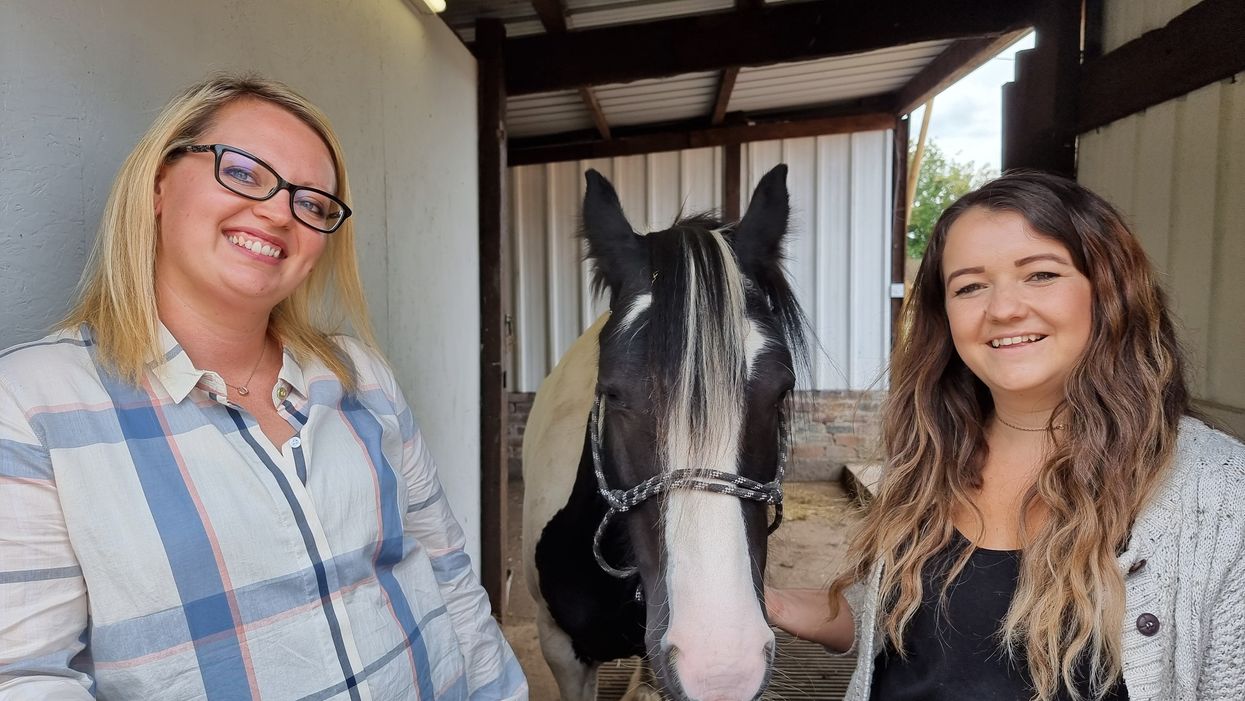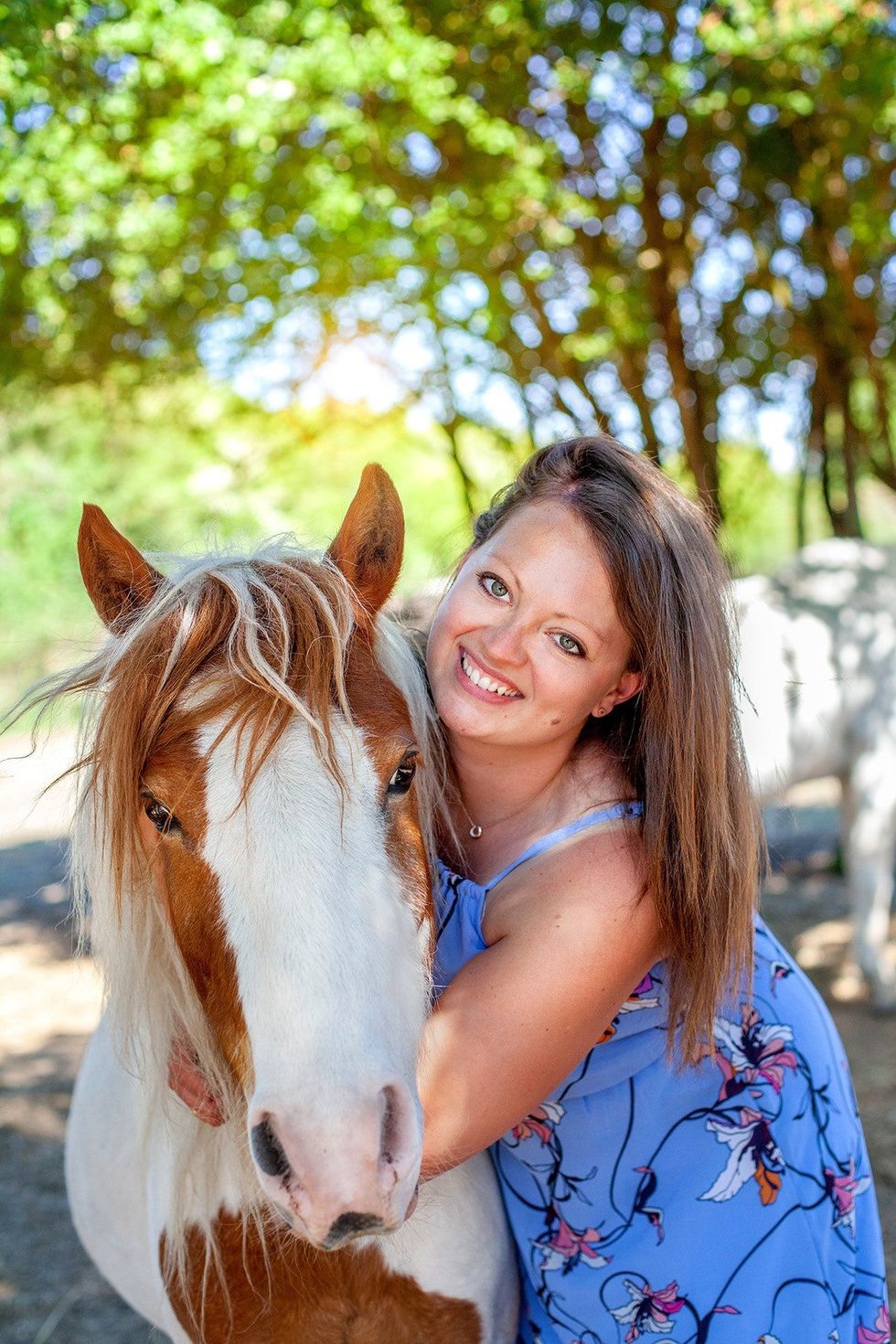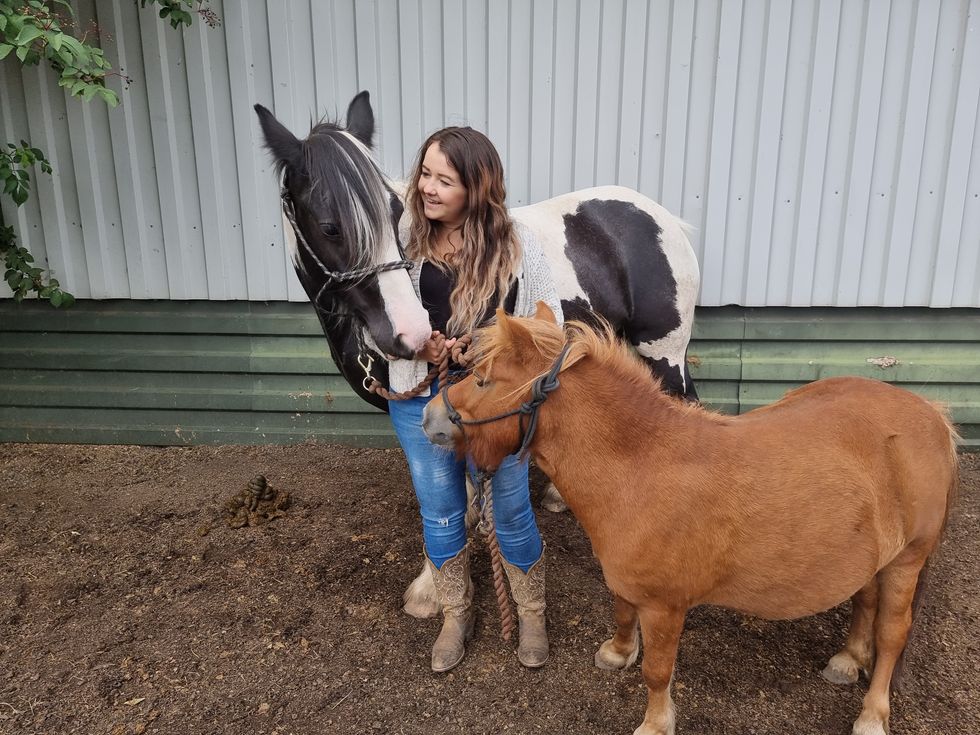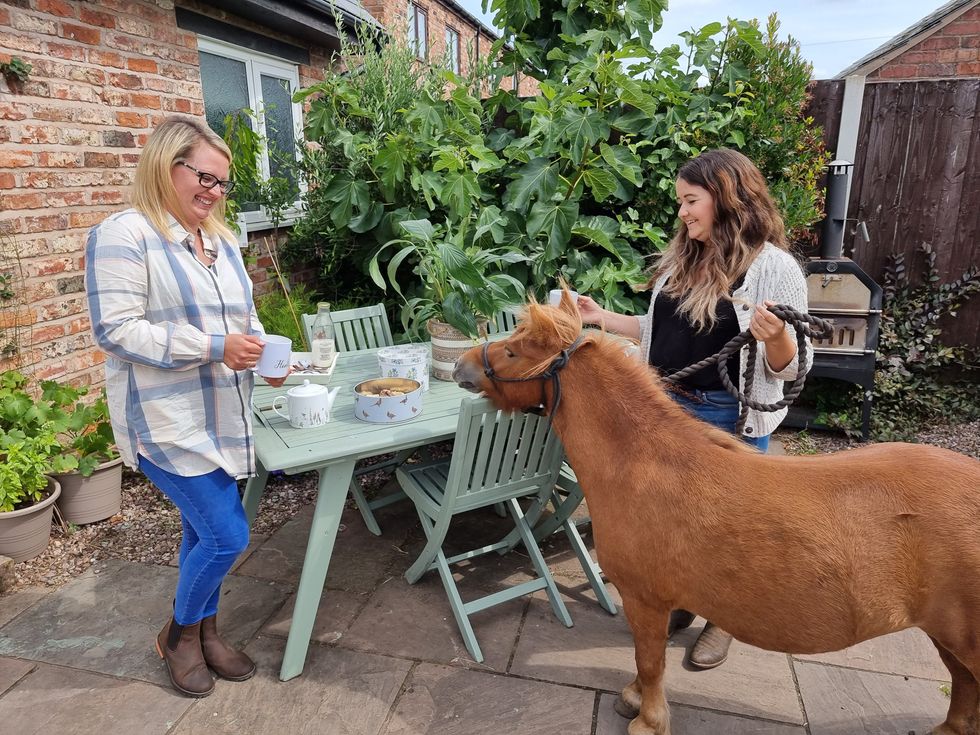
Horses are helping cancer patients through their treatment thanks to an equine therapy service set up by a survivor.
Sarah Stephens, 32, came up with the idea for the Spirit and Soul Equine Therapy Service when she was diagnosed with breast cancer in 2016 and went to see her two horses, who both lay down with their heads in her lap.
Now five years on, she has teamed up with cancer charity Macmillan to offer equine therapy for those receiving cancer treatment at eight centres around the country.
Ms Stephens underwent chemotherapy, a double mastectomy and had her ovaries removed, but said spending time with her horses kept her “upbeat” and gave her a sense of hope.
She told the PA news agency: “They still just treated me as me, so it didn’t matter when all my hair came out, it didn’t matter when they chopped body parts off and all that kind of stuff.
“I found that they really look at what is going on inside, rather than the external stuff, and were really responding and reacting to where my emotions were.”
I found that they really look at what is going on inside, rather than the external stuff, and were really responding and reacting to where my emotions were.
Sarah Stephens, Spirit and Soul Equine Therapy ServiceShe took her notebook and business plan along with her to chemotherapy sessions and vowed that one day she would work with Macmillan to let horses help other patients.
Within a year she had achieved her goal and was running therapy sessions at her first centre in Stenson, Derbyshire.
She said: “I have absolutely adored working with people with and beyond cancer.
“A horse is this big animal that is so unpredictable, supposedly, and actually that is a really nice metaphor for people because that is what cancer is.
“It’s this big thing that is really unpredictable, and over the course of being in sessions with us you can learn how to work with and respond with something so uncontrollable.”
Now the service has been expanded to seven other sites across England.
Bethany Finch, 28, and her horses Dixie, a Gypsy cob, and Shiloh, a Shetland pony, offer therapy to patients in the North West at the Healing with Horses centre in Widnes Cheshire.
Ms Finch said the sessions might involve observing the horses, grooming or working with them.
She said: “A cancer diagnosis can turn people’s lives completely upside down, so we have this space here to explore all of that, all those really difficult emotions.”
Ms Finch said the horses were “incredible” at picking up on people’s feelings.
She added: “You hear a lot about people with cancer having to put on a brave face and here, they can take off that brave face, there’s no need for it.”
Macmillan will fund four one-hour sessions for people going through cancer treatment, where they can take part in exercises designed to help combat stress, anxiety and depression and improve mindfulness.
Nicole McIlveen, Macmillan partnership manager for the North West, said: “Being diagnosed with cancer can be an emotional rollercoaster and we will do whatever it takes to support people through this difficult period.
“This unique service gives those who are having treatment the time and space to address their emotional wellbeing in a supportive environment so they can live life as fully as they can with and beyond cancer.”
















